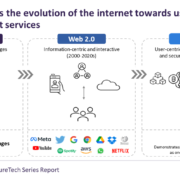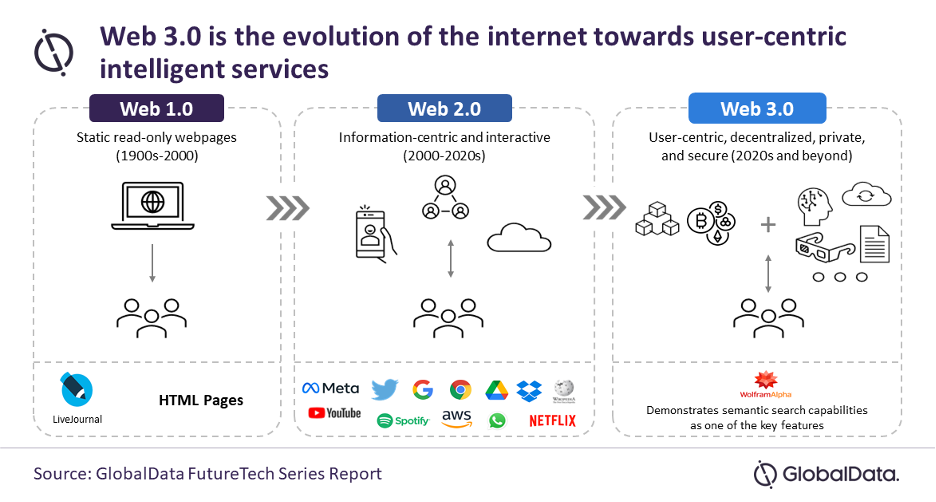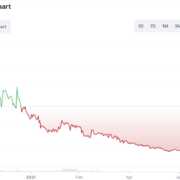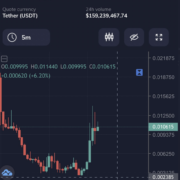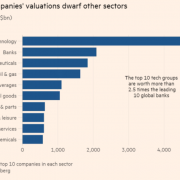Costs Spike for New Crypto-Supported Internet
Advanced technologies such as cryptocurrencies and (non-fungible) tokens will play a leading role in Web 3.0, since they reflect a sense of ownership in decentralized blockchain networks.
Much of this is totally new and the programming and design behind it won’t be able to mesh well with what happened before.
Think of the latest hype of NFTs, or non-fungible tokens, which shifts the ownership of a certain form of money, which is the case with cryptocurrencies, to the ownership of many other digital assets, from artworks to memes and tweets.
Internet 2.0 programmers won’t be able to just seamlessly integrate into this new language and help develop this new world.
Web 3.0 enables the spread of cooperative governance frameworks for formerly centralized products.
There are few qualified Web 3.0 developers and they are able to ask for astronomical compensation for their service.
This won’t stop anytime soon as companies like Meta (FB), who have cash, are willing to throw money at this limited pool of developers.
There are many costs involved in being a Web 3.0 developer. The initial start-up cost is typically high, but this is offset by the increased flexibility it affords. As you build your portfolio of Web 3.0 projects, the costs will gradually decrease.
This technology would make the web more transparent and user-centric, while also opening the door for the blockchain. In the future, websites and apps could trade cryptocurrencies and other coins.
Becoming a Web 3.0 developer is not easy, but the rewards are well worth it. Those who have mastered the basics of the new framework can build an excellent website.
The cost of learning to become a Web 3.0 developer varies, but can be extremely high. After all, it takes a lot of time to build a successful business on this technology. There are also plenty of challenges involved with it.
The technology is not yet mainstream, but a handful of projects are attempting to build channels through the interoperability of blockchain networks.
You must have an understanding of web development, understand the trade-offs between different types of technologies, and be able to see trends and future directions in the industry.
A free course on Blockchain and cryptocurrencies can help you master the skills you need. Harvard University’s CS50 course will teach you the basics of computer programming, including data handling and Blockchain. Blockchain is crucial for Web3.0 developers because it is not only related to crypto coins, but can also run cutting-edge DApps and full backends.
The Web3.0 technology is a fast-growing field, and it is much like the dot-com era in the early 2000s.
A career as a Web3.0 developer is highly likely the best type of career to focus on for anyone getting into tech these days.
The risk-reward is skewed so much to the reward that many “full-time” developers are setting their workweeks at only a maximum of 24 hours per week or three days.
Not only that, web 3.0 developers are asking for starting salaries of $200,000 per year and if a company is interested in adding a 4th day of work, then that starting salary spikes to $300,000.
Remember these sums aren’t just it, these developers require a good amount of stock options.
Lastly, these web developers are refusing any job as “independent contractors” and won’t look at any offers that are anything other than a full-time employee with those implied rights.
Even under these terms, these web 3.0 developers have a line outside the door of companies willing to pay this type of compensation to get them in the door.
Web 3.0 is proposed to become the next iteration of the internet, but right now, the only people winning in this race are the people putting it together.
Until this new version of the internet comes online, companies won’t be able to fully monetize or onboard consumers.
This of course is important because crypto will be the medium of payment in this internet 3.0.
The lead up to that moment means that companies will need billions just to get a seat at the table.

